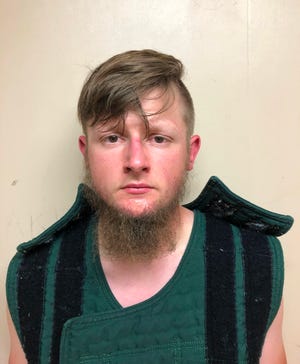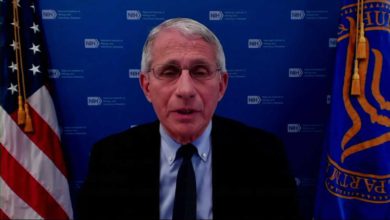
Robert Aaron Long, the 21-year-old suspect charged with eight counts of murder after three shootings on Tuesday at Atlanta-area spas, had been in rehab for sex addiction and was wracked with guilt about his sexual urges, according to two people who lived with him in transitional housing.
Long allegedly shot and killed eight people — six women and two men — at three different Georgia spas. While the accounts from Long's former housemates bolster his claim that sex addiction was the motivation for his attack, they do not preclude something else being a motive in the shootings.
The women were all of Asian descent. Hate crimes against Asian-Americans have been spiking in recent months, and Long clearly targeted Asian-American businesses in his shooting spree.
Long was deeply religious and could not control his desire to visit massage parlors and engage in sexual acts, something that sent him into deep bouts of depression, said Tyler Bayless, who lived with Long for six months in 2019 and 2020 at Maverick Recovery Center in Roswell, Georgia. Long would frequently relapse, then express guilt because of his Christian faith, Bayless said.
'It just really hit home':Georgia killings leave unforgettable mark on local businesses
"He would say, 'I've done it again' and it just ate away at him," Bayless said. "He felt absolutely merciless remorse."
Especially after his relapses, Long would spend hours in prayer, Bayless said. In weekly therapy sessions he would confess his indiscretions and say how guilty he felt about what he had done.

Bayless's relationship to Long was first reported by CNN. A call to Maverick Recovery Center was not answered.
Bayless' account, was mirrored by another former housemate, Bronson Lillemon, who said he lived with Long for three months in 2020.
“He felt a lot of guilt, and a lot of shame,” Lillemon said. “I don’t know the specific massage parlors that he went to, but I would assume that the ones he shot up were the ones he went to.”
There's been a rise in anti-Asian attacks:Here's how to be an ally to the community.
Both Lillemon and Bayless said they had never heard Long use racist language or disparage non-white people.
Both former housemates said Long spent remarkably little time online, and to their knowledge didn't frequent racist internet message boards or websites.
"He didn't even have a smartphone," Bayless said.
Still, Grace Kao, an expert on Asian American studies and the sociology department chair at Yale University, said it was hard to disentangle race from the killings.
The shooter had targeted Asian American women, and given how "Asian American women have been viewed as exotic and feminine objects in U.S. mass media and suspected of prostitution from the earliest U.S. immigration restrictions," the suspect could easily have viewed Asian American women in the same manner, Kao said.

Bayless said he was "shocked, but not surprised" when he learned Long had been involved in a mass shooting. He said Long was a gun enthusiast, and recalled him telling a story about receiving his first gun for his eighth or ninth birthday.
At one point, Bayless said Long gave him a knife to take care of because he feared he would harm himself with it.
"When I saw the headlines, my mind went straight to him, because those were the places he would frequent," Bayless said of Long. "I always thought he'd do something, but I thought he would harm himself, not something like this."
Two former high school classmates said Long was extremely shy. He didn't voice his political opinions in public, and wasn't ever overtly racist, they said.
"He was normal!" said Emily Voigt, who attended elementary, middle and high school with Long. "Never went out of his way to talk to girls, sat in the back of classes and never spoke. But never caused issues so the girls didn’t have an issue with him."
Police said Wednesday that Long is cooperating with their investigation and that he had targeted the businesses because of his sex addiction.
Contributing: Nicholas Wu and Brenna Smith, USA TODAY
Source link










